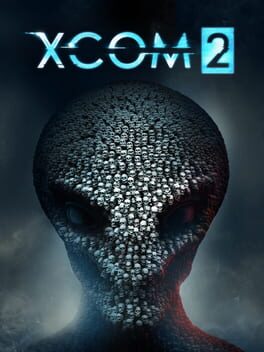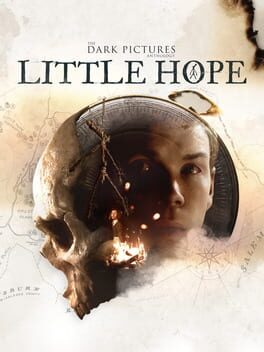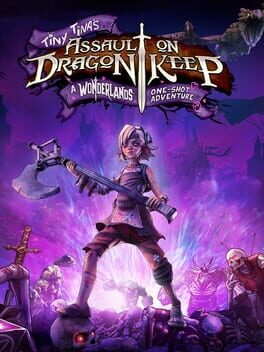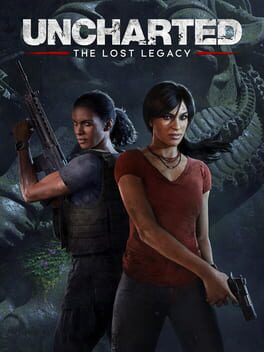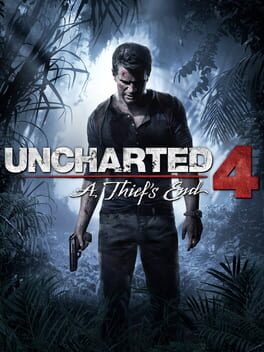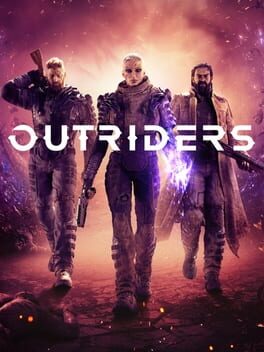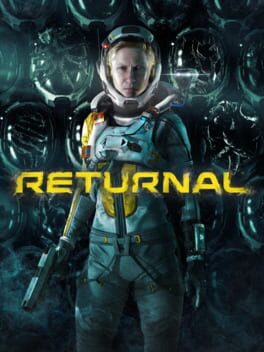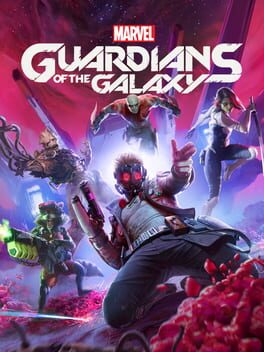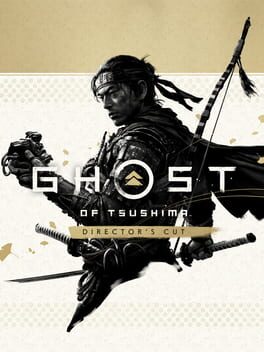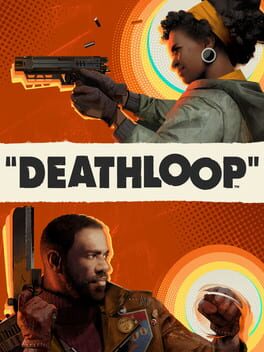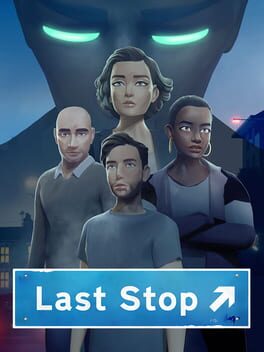ImmortanJones
2016
Finally got around to playing the main campaign instead of dicking around and giving my troops elaborate backstories. Ended up hitting the RNG dice roll of death when my sniper missed three 95% shots in a row early in the game and had the realization that Firaxis will personally see to it that I never beat an XCOM in Ironman Mode. This is the best of the best, folks. Vigilo confido.
2022
Elden Ring. Oh, Elden Ring. Anticipated beyond belief, showered with praise aplenty, and grossing an equal amount in sales, the latest in From Software's signature line of dark fantasy RPGs sends players to the Lands Between, an embattled open world brimming with danger and secrets for the intrepid to overcome and discover on their quest to become the ruler of these sacred grounds. As Tarnished, you will take up the fight against Elden Ring's vast array of enemies and cement your legacy as Elden Lord (a title that has finally entered my grasp mere weeks after everyone else in my friend group had already claimed theirs).
From Software's prowess as world builders and combat designers shines as bright as the light of the Erdtree, a feat that seems almost improbable given how many times and how many ways they have remixed and refined their formula over the years. The typical trappings any other triple-A developer would fall into while designing such a massive game are fairly non-existent in Elden Ring, an experience that prides itself on being more than just a checklist of objectives for players to sluggishly trudge through.
Despite its scale, Elden Ring remains intimate in its moment-to-moment gameplay and stuns with the detail and precision of the game's progenitor series, Dark Souls, offering a balanced blend of nail-biting combat and heart-stopping wanderlust that made the latter series a household name. Only time will tell if this is the apex of From Software's pedigree or the start of something spectacular for the team that constantly reminds its audience how much fun can be found in overcoming the insurmountable. At the very least, Elden Ring has changed the game, a game it has spent decades mastering. Arise, ye Tarnished! And prepare to die.
4.5 out of 5.
Behold! The Loathsome Dung Critic!
From Software's prowess as world builders and combat designers shines as bright as the light of the Erdtree, a feat that seems almost improbable given how many times and how many ways they have remixed and refined their formula over the years. The typical trappings any other triple-A developer would fall into while designing such a massive game are fairly non-existent in Elden Ring, an experience that prides itself on being more than just a checklist of objectives for players to sluggishly trudge through.
Despite its scale, Elden Ring remains intimate in its moment-to-moment gameplay and stuns with the detail and precision of the game's progenitor series, Dark Souls, offering a balanced blend of nail-biting combat and heart-stopping wanderlust that made the latter series a household name. Only time will tell if this is the apex of From Software's pedigree or the start of something spectacular for the team that constantly reminds its audience how much fun can be found in overcoming the insurmountable. At the very least, Elden Ring has changed the game, a game it has spent decades mastering. Arise, ye Tarnished! And prepare to die.
4.5 out of 5.
Behold! The Loathsome Dung Critic!
A definite improvement over Supermassive Games' previous entry in The Dark Pictures Anthology, Little Hope continues to offer a decent blend of choose-your-own-adventure excitement with heart-stopping horror wrapped up in a janky, unoptimized bow. Narratively, I wasn't as distracted by the baffling decisions characters made when I wasn't in control of them, and it also gives Until Dawn a run for its money in terms of satisfying conclusions. But again, the game lacks the polish and prestige of their PlayStation-exclusive spook-show, leaving it in the weird middle-ground of AA titles from days of yore. Apparently Ashley Tisdale is the star of the next installment, so maybe they can put some more money towards animating the character models in a way that doesn't evoke the terror of a bad marionette show.
2020
Second complete playthrough has yielded some... interesting thoughts. I still stand by my original assessment: you can dust off all the bugs, glitches, incompetent AI, meaningless open-world progression, and useless cosmetic system - at the heart of Cyberpunk 2077 is a disjointed narrative held aloft by the sheen of other, more prestigious games in CDPR's back catalogue. Aping the aesthetics of Mike Pondsmith's grungy sci-fi dystopia, the game can't seem to grasp that cyberpunk fiction is supposed to fly a big fat middle finger to the establishment. Cyberpunk is a transhumanist death rattle against the capitalist machine that crushes the majority under its exponentially growing boot. It should speak volumes that the game's avatar of rebellion, a rockstar terrorist played by cyberpunk mainstay Keanu Reeves, believes that true rebels only fight against institutions of power for their own self-interest. An RPG devoid of choice, a shooter devoid of purpose, and a story devoid of meaning. Cyberpunk 2077 doesn't deserve a second chance, and it never will.
After the landmark success of The Last of Us and the unceremonious departure of Amy Hennig from the then untitled sequel to Uncharted 3: Drake's Deception, Bruce Straley and Neil Druckmann came together once more to give Nathan Drake a sendoff into the next generation, a treasure hunting, swashbuckling magnum opus for PlayStation's headlining thief-turned-adventurer. Uncharted 4: A Thief's End deviates from the series overall tone by taking a more muted approach to Nate's smarmy humor with a story that revolves primarily around the relationships he's cultivated with his companions and Sam, his long-lost elder brother. The true conflict isn't between the brothers Drake and an innumerable army of faceless goons, it's between Nate's desire to live a life of adventure while trying to protect those he loves. It's always been the characters that make these games, and to see them take the centerstage next to the GPU-melting setpieces warms my Indiana Jones-revering heart. Always a blast to play. Patiently awaiting the next Drake adventure!
2021
People Can Fly came out the gate swinging (literally) with Bulletstorm back in 2011. Ten years later, the team set their sights on a game with loftier ambitions and twice as much busywork with Outriders, a co-op action adventure in the same vein as The Division or Destiny - only, you know, not as fundamentally enjoyable.
Outriders attempts to set itself apart with an engaging narrative about humanity's struggle to live among the stars after decimating Earth through corporate greed, winding up with but a scant fraction of the planet's population on Enoch, a goldilocks world that is home to an ancient civilization of super-powered aliens (although, I guess humanity would be the real aliens). The story, told through cutscenes, codex pages, and many long-winded radio calls basically boils down to people bad, nature good, told with all the subtlety and nuance of that last Adam McKay movie we all collectively groaned at. Most of the performances and characters seem deliberately "too-edgy-4-me" in a way that clashes with the seriousness of the setting and plot. Bulletstorm was a comedy. Outriders is an unintentional comedy.
Fear not, the game still has much to offer: crisp moment-to-moment gunplay with a variety of weapons and classes that make building your "Altered" protagonist an engaging and evolving experience over the course of the meaty campaign. The world tier system that dynamically increases the difficulty of the game based on player performance also adds another dimension of complexity to what is, admittedly, a barebones games-as-a-service title with a sci-fi coat of paint. Other than that, not much to write home about. The bulk of playtime is spent either running around combat arenas with the game's finicky cover system or running around barren hubs looking for quest items to deliver. Sometimes, it's a combination of both!
I'd be lying if I said I didn't have some fun here or there, mostly because progression in these types of games is fairly satisfying (at least until the endgame) and the fashionista in me loves decking my character out in whatever haute interplanetary couture the art department over at PCF whipped up. In essence, I see legendary items, I get dopamine hit. Simple as.
2.5 OUT OF 5.
Wonder who decided that the final hub area should be an internment camp with the bodies of dead natives pilled in mass graves that the player could use as cover during combat. Just awful stuff.
Outriders attempts to set itself apart with an engaging narrative about humanity's struggle to live among the stars after decimating Earth through corporate greed, winding up with but a scant fraction of the planet's population on Enoch, a goldilocks world that is home to an ancient civilization of super-powered aliens (although, I guess humanity would be the real aliens). The story, told through cutscenes, codex pages, and many long-winded radio calls basically boils down to people bad, nature good, told with all the subtlety and nuance of that last Adam McKay movie we all collectively groaned at. Most of the performances and characters seem deliberately "too-edgy-4-me" in a way that clashes with the seriousness of the setting and plot. Bulletstorm was a comedy. Outriders is an unintentional comedy.
Fear not, the game still has much to offer: crisp moment-to-moment gunplay with a variety of weapons and classes that make building your "Altered" protagonist an engaging and evolving experience over the course of the meaty campaign. The world tier system that dynamically increases the difficulty of the game based on player performance also adds another dimension of complexity to what is, admittedly, a barebones games-as-a-service title with a sci-fi coat of paint. Other than that, not much to write home about. The bulk of playtime is spent either running around combat arenas with the game's finicky cover system or running around barren hubs looking for quest items to deliver. Sometimes, it's a combination of both!
I'd be lying if I said I didn't have some fun here or there, mostly because progression in these types of games is fairly satisfying (at least until the endgame) and the fashionista in me loves decking my character out in whatever haute interplanetary couture the art department over at PCF whipped up. In essence, I see legendary items, I get dopamine hit. Simple as.
2.5 OUT OF 5.
Wonder who decided that the final hub area should be an internment camp with the bodies of dead natives pilled in mass graves that the player could use as cover during combat. Just awful stuff.
2021
Housemarque's patented bullet hell calamity finds new life in this third-person roguelike about grief, trauma, the end of days, and slippery-slimy squid monsters. A defining release for the young PlayStation 5, Returnal boasts some of the industry's finest sound design, haptic feedback, fly-by-the-seat-of-your-pants combat arenas, and one of my favorite inclusions of licensed music this side of Grand Theft Auto. Y'all know what I'm talking about, and if you don't, go beat up a scalper, take his PS5, and play this monumental success from the studio that Super Stardust built.
2021
Remedy Entertainment's finest narrative endeavor. The gameplay loop leaves a little to be desired, clunky mechanics and dated lighting engine aside. But playing Alan Wake for the gameplay instead of the story would be like going to see a Christopher Nolan film for good female representation. The narrative depth in Alan Wake is unparalleled with layers upon layers of meaning and examination into the human experience through the lens of a writer weaving a tale about fear and love and sacrifice that manifests itself as the game you are playing.
It's not a lake... it's an ocean.
3.5 out of 5.
This is barely a remaster, but the game holds up so well.
It's not a lake... it's an ocean.
3.5 out of 5.
This is barely a remaster, but the game holds up so well.
Humor can be hit or miss but, at its core, Guardians of the Galaxy remains true to the spirit of the ragtag team of misfits by injecting them with a flarkload of heart and passion, replete with many quiet moments of empathy and growth amidst a sea of laughably easy combat encounters.
Eidos Montreal may have been toiling away in the Square Enix IP mines for a while but it's clear that they still have a team of talented creators at the helm. Would love for Square to let them finish Deus Ex now. Or any time. Please, I need more... I'm asking for it. It's been too long. Please, Square.
Eidos Montreal may have been toiling away in the Square Enix IP mines for a while but it's clear that they still have a team of talented creators at the helm. Would love for Square to let them finish Deus Ex now. Or any time. Please, I need more... I'm asking for it. It's been too long. Please, Square.
The definitive edition of Hideo Kojima's first triple-A blockbuster sans Konami is as arresting and captivating as it was when it was released back in 2019. Nearly two years on, and the story of reconnecting America through love, acceptance, and countless delivery and service workers has taken on a whole new place of importance in Kojima's body of work, a title that presciently codified fears many of us would have going in to "the new normal" while simultaneously weaving an existential epic about the fears of fatherhood.
Death Stranding combines the slick, highly-produced animations and cinematics of Kojima Productions' past with genre-bending gameplay and a dash of cooperative multiplayer to create a game unlike any in the industry. Full of Kojima's campy dialogue and verbose exposition dumps, it may be an acquired taste for newcomers, but for longtime fans of gaming's biggest auteur, it feels like coming home.
4 out of 5.
My biggest takeaway is that Amazon's employees should throw piss bombs at Jeff Bezos.
Death Stranding combines the slick, highly-produced animations and cinematics of Kojima Productions' past with genre-bending gameplay and a dash of cooperative multiplayer to create a game unlike any in the industry. Full of Kojima's campy dialogue and verbose exposition dumps, it may be an acquired taste for newcomers, but for longtime fans of gaming's biggest auteur, it feels like coming home.
4 out of 5.
My biggest takeaway is that Amazon's employees should throw piss bombs at Jeff Bezos.
Uh-oh, it's contrarian time! Yeah, I just don't like Ghost of Tsushima that much. I'll do a full review and analysis at some point, but just so this negative blurb gives people something to chew on:
Ghost of Tsushima is a slap in the face to anyone who has a legitimate love of samurai cinema rather than an aesthetic fascination that rarely goes beyond straight up Orientalism. The Director's Cut does not amend any issues I have with its launch day counterpart. In fact, locking the cutscenes at 30FPS is a laughable blunder on the part of Sucker Punch that adds even more scrutiny to their already mangled cinematics, especially in the same console generation where Spider-Man can run at a consistent 60FPS with ray-tracing. Ghost of Tsushima is a slightly more stylistically competent Assassin's Creed that lacks the heart, soul, and production value of its contemporary PlayStation Studios counterparts.
2.5 out of 5.
Play Nioh instead, you cowards!
Ghost of Tsushima is a slap in the face to anyone who has a legitimate love of samurai cinema rather than an aesthetic fascination that rarely goes beyond straight up Orientalism. The Director's Cut does not amend any issues I have with its launch day counterpart. In fact, locking the cutscenes at 30FPS is a laughable blunder on the part of Sucker Punch that adds even more scrutiny to their already mangled cinematics, especially in the same console generation where Spider-Man can run at a consistent 60FPS with ray-tracing. Ghost of Tsushima is a slightly more stylistically competent Assassin's Creed that lacks the heart, soul, and production value of its contemporary PlayStation Studios counterparts.
2.5 out of 5.
Play Nioh instead, you cowards!
2021
I've been a champion of Arkane Studios since I borrowed a friend's copy of Dishonored back in 2012, and in all that time, never once was there an overwhelming critical and commercial response that I thought was sufficient for the team behind Dark Messiah and Arx Fatalis. After mixed reception of their Prey reboot and a looming buyout from Microsoft sent nary a ripple through the online game-o-sphere, I feared that the original Dishonored was going to be the last time anyone's ears pricked up at the mention of my favorite team of immersive-sim hooligans from lively ol' France. Suffice to say, I was wrong. Deathloop is, in the eyes of many, a rousing success and a feather in the cap of Arkane Lyon. A swan song, if you will, for their time as a multi-platform studio before going on to create bigger and better things for the suits over at Bill Gates' alma mater. However, I'd be lying if I said I shared the same fervor.
Before I start dissecting Deathloop with my critical scalpel, I'm going to heap a modicum of praise on the aspects of the game that I think let it stand head-and-shoulder with some of its contemporaries in the immersive-sim genre (and to some extent, first-person shooters as a whole). For starters, Deathloop boasts an impeccable stylistic milieu that hasn't been touched upon at all in the game-o-sphere, excepting a handful of James Bond tie-ins and No One Lives Forever. The pop mash-up of disco deco and blacksploitation sci-fi is a wild, unruly direction that pays off in droves, lending each disparate style a uniformity of counter-cultural uniqueness that mixes well with the exaggerated character models and wonky supernatural aesthetics that Arkane perfected in Dishonored. Okay, yes, I am trying to sound smarter than I am here: Deathloop looks and sounds fucking cool. Harsh monochrome animatics, floating text, and gorgeous vistas swirl about in a melting pot of high-concept ideas and top-tier gunplay, and if that were the end of my analysis, you could easily walk away thinking that Deathloop is at the top of my list of artistic endeavors. Unfortunately, I'm being a bit too cheeky to let the game get away with wowing me with pitch perfect production.
Where Deathloop falls short for me is in a multitude of arenas that all happen to add up exponentially. Despite the gunplay feeling responsive and crunchy, the AI refuses to give you a challenge, making the player's victories over the armies of faceless goons an unearned, easily repeatable (scratch that, mandatorily repeatable) hinderance once you've mastered the basics on the core mechanics. Which I have indeed neglected to mention up till this point! Deathloop is, as the title suggests, a time travel game where you the player as Colt the gunslinger must complete a series of assassinations in the span of a single day lest that day be reset and you the player (as Colt the gunslinger) along with it, carrying vital information that may or may not help you complete a loop successfully. If you die, you loop. It's your standard "video-game-genre" meets Groundhog Day, which seems to be the style of 2021, all things considered. With a premise as solid as that, what could go wrong? Well, dear reader, many things apparently.
The time loop mechanic that is the selling point of Deathloop has diminishing returns in its efficacy. At the front end of the game, uncovering secrets, finding efficient modes of clearing arenas, and acquiring an arsenal of overpowered weapons is gripping, unadulterated fun. Mastery over the game comes quickly to those who've experienced Arkane's previous titles, and the game-feel compared to Dishonored and its sequels is leagues ahead. But Dishonored lives in this game's DNA, down to its lead tracking system, always marked targets, and broken traversal. Deathloop holds your hand at every turn, and even if you try to muffle its obnoxious cries, it will still find a way to ensure you will never feel stuck. Map markers tell you exactly where to go, the aforementioned floating text will always nudge you toward another prompt, and Colt will often talk to himself whenever you come across an item that will definitely be used for something later. These shorthand techniques that ensure the vast majority of players will never be frustrated makes the entire experience of exploration, discovery, and mastery as hollow as the combat. On top of that, the game is structured so rigidly, the chances to have an "a-ha" moment where the player experiments with the game to solve problems in unique ways (not too dissimilar from a myriad of immersive-sim titles) are few and far between, with the final quest of the game being a standard checklist of things you have to do in a set order before finally cutting to black. This lack of agency is in startling contrast to Arkane's previous work where the sandboxes felt like sandboxes and not obstacles on the road to completion.
And while we're talking about sandboxes, let's randomly switch gears to the game's worst feature: asynchronous multiplayer! Yes, the lauded "invasion" feature of Dark Souls fame rears its frustrating head in Deathloop. Players can take on the role of Julianna, Colt's rival, to invade other active players' games and try and cut their loops short. Seems fine on the surface, however the game has no way of balancing these encounters. Oftentimes, low-level Colts will be steamrolled by a high-level Julianna and vice versa. Rarely did another player end my run early, which made each encounter a tedious divergence from what I was more interested in doing - A.K.A. playing the goddamn game.
And now, another divergence: storytelling! Deathloop is a mystery... supposedly. It more or less fits into the type of mystery storytelling that J.J. Abrams popularized with Lost: the mystery box approach A.K.A. the "I-don't-know-we'll-figure-it-out-later" approach or, as I like to call it, the "fuck-around-and-find-out" approach. When you fuck around and find out about the secrets at the heart of Deathloop, you are left disappointed with more half-answers and bigger questions being asked than actual narratively satisfying conclusions being delivered. While the voice-acting and character writing give games like Uncharted or Mass Effect a run for their money, the over-arching narrative of Deathloop is pretty run-of-the-mill and, in my playthrough, very poorly paced. Plot revelations and key moments happen seemingly randomly in the middle of certain quests and the player doesn't get enough time to decompress or absorb any of the information, especially when the loose-science fiction elements remain consistently inconsistent, so literally any plot detail can be waved away as metaphorical or dream-like in its execution. What is Deathloop trying to say with its story? Something generic, really. Doesn't matter. It's not told that well, which is more what I am concerned with.
I'm happy that Arkane is finally getting the recognition it deserves, but I'm not convinced it deserves it for Deathloop. Plenty of other titles have come along in the last few years that handle the time-loop adventure in ways that are unique to games but also unique to the genre as a whole, and I wish Deathloop allowed players to make the adventure their own rather than funneling down a path toward an unsatisfying, derivative story. As with most videogames on the market these days, you can just buy it for half off a few months later and spend your time playing Hades instead, a game that lives up to the tagline, "If at first you don't succeed, die, die, die again."
Arkane, I still love ya, babe, but I know you can do better. Excited for Redfall!
(Please don't let me down!)
3 out of 5.
The perfect game for someone who thought The Forgotten City was too jank and Twelve Minutes was too taboo!
Before I start dissecting Deathloop with my critical scalpel, I'm going to heap a modicum of praise on the aspects of the game that I think let it stand head-and-shoulder with some of its contemporaries in the immersive-sim genre (and to some extent, first-person shooters as a whole). For starters, Deathloop boasts an impeccable stylistic milieu that hasn't been touched upon at all in the game-o-sphere, excepting a handful of James Bond tie-ins and No One Lives Forever. The pop mash-up of disco deco and blacksploitation sci-fi is a wild, unruly direction that pays off in droves, lending each disparate style a uniformity of counter-cultural uniqueness that mixes well with the exaggerated character models and wonky supernatural aesthetics that Arkane perfected in Dishonored. Okay, yes, I am trying to sound smarter than I am here: Deathloop looks and sounds fucking cool. Harsh monochrome animatics, floating text, and gorgeous vistas swirl about in a melting pot of high-concept ideas and top-tier gunplay, and if that were the end of my analysis, you could easily walk away thinking that Deathloop is at the top of my list of artistic endeavors. Unfortunately, I'm being a bit too cheeky to let the game get away with wowing me with pitch perfect production.
Where Deathloop falls short for me is in a multitude of arenas that all happen to add up exponentially. Despite the gunplay feeling responsive and crunchy, the AI refuses to give you a challenge, making the player's victories over the armies of faceless goons an unearned, easily repeatable (scratch that, mandatorily repeatable) hinderance once you've mastered the basics on the core mechanics. Which I have indeed neglected to mention up till this point! Deathloop is, as the title suggests, a time travel game where you the player as Colt the gunslinger must complete a series of assassinations in the span of a single day lest that day be reset and you the player (as Colt the gunslinger) along with it, carrying vital information that may or may not help you complete a loop successfully. If you die, you loop. It's your standard "video-game-genre" meets Groundhog Day, which seems to be the style of 2021, all things considered. With a premise as solid as that, what could go wrong? Well, dear reader, many things apparently.
The time loop mechanic that is the selling point of Deathloop has diminishing returns in its efficacy. At the front end of the game, uncovering secrets, finding efficient modes of clearing arenas, and acquiring an arsenal of overpowered weapons is gripping, unadulterated fun. Mastery over the game comes quickly to those who've experienced Arkane's previous titles, and the game-feel compared to Dishonored and its sequels is leagues ahead. But Dishonored lives in this game's DNA, down to its lead tracking system, always marked targets, and broken traversal. Deathloop holds your hand at every turn, and even if you try to muffle its obnoxious cries, it will still find a way to ensure you will never feel stuck. Map markers tell you exactly where to go, the aforementioned floating text will always nudge you toward another prompt, and Colt will often talk to himself whenever you come across an item that will definitely be used for something later. These shorthand techniques that ensure the vast majority of players will never be frustrated makes the entire experience of exploration, discovery, and mastery as hollow as the combat. On top of that, the game is structured so rigidly, the chances to have an "a-ha" moment where the player experiments with the game to solve problems in unique ways (not too dissimilar from a myriad of immersive-sim titles) are few and far between, with the final quest of the game being a standard checklist of things you have to do in a set order before finally cutting to black. This lack of agency is in startling contrast to Arkane's previous work where the sandboxes felt like sandboxes and not obstacles on the road to completion.
And while we're talking about sandboxes, let's randomly switch gears to the game's worst feature: asynchronous multiplayer! Yes, the lauded "invasion" feature of Dark Souls fame rears its frustrating head in Deathloop. Players can take on the role of Julianna, Colt's rival, to invade other active players' games and try and cut their loops short. Seems fine on the surface, however the game has no way of balancing these encounters. Oftentimes, low-level Colts will be steamrolled by a high-level Julianna and vice versa. Rarely did another player end my run early, which made each encounter a tedious divergence from what I was more interested in doing - A.K.A. playing the goddamn game.
And now, another divergence: storytelling! Deathloop is a mystery... supposedly. It more or less fits into the type of mystery storytelling that J.J. Abrams popularized with Lost: the mystery box approach A.K.A. the "I-don't-know-we'll-figure-it-out-later" approach or, as I like to call it, the "fuck-around-and-find-out" approach. When you fuck around and find out about the secrets at the heart of Deathloop, you are left disappointed with more half-answers and bigger questions being asked than actual narratively satisfying conclusions being delivered. While the voice-acting and character writing give games like Uncharted or Mass Effect a run for their money, the over-arching narrative of Deathloop is pretty run-of-the-mill and, in my playthrough, very poorly paced. Plot revelations and key moments happen seemingly randomly in the middle of certain quests and the player doesn't get enough time to decompress or absorb any of the information, especially when the loose-science fiction elements remain consistently inconsistent, so literally any plot detail can be waved away as metaphorical or dream-like in its execution. What is Deathloop trying to say with its story? Something generic, really. Doesn't matter. It's not told that well, which is more what I am concerned with.
I'm happy that Arkane is finally getting the recognition it deserves, but I'm not convinced it deserves it for Deathloop. Plenty of other titles have come along in the last few years that handle the time-loop adventure in ways that are unique to games but also unique to the genre as a whole, and I wish Deathloop allowed players to make the adventure their own rather than funneling down a path toward an unsatisfying, derivative story. As with most videogames on the market these days, you can just buy it for half off a few months later and spend your time playing Hades instead, a game that lives up to the tagline, "If at first you don't succeed, die, die, die again."
Arkane, I still love ya, babe, but I know you can do better. Excited for Redfall!
(Please don't let me down!)
3 out of 5.
The perfect game for someone who thought The Forgotten City was too jank and Twelve Minutes was too taboo!
2021
Variable State bungled what was otherwise an interesting concept in their nascent title Virginia, a hodge-podge of references and storytelling beats derived from the works of David Lynch. With zero expectations from their botched walking sim going into their most recent title, the game ended up being a surprisingly competent Telltale-esque adventure that, while pulling from a wider array of film and game influences, manages to mesh them all together in a clever, bittersweet journey that rivals some of the best in the adventure game genre.
Held back only by the technical limitations of their engine and (presumably) a fraction of the budget needed to successfully pull off a story of this breadth, Variable State's Last Stop hits the high notes in nearly every other aspect. The voice acting felt natural and suitably Bri'ish, the character designs mirror the kind of caricaturized proportions in an Arkane title, and the storytelling - excepting a handful of missteps - always engages and intrigues, sending the player across a whole host of environments not limited to the street corners and flats of the small city the main narrative takes place in.
Definitely a major step up from Virginia and a world I wouldn't mind returning to in the future, Last Stop is - without a doubt - a success for the fledging team that put it together, warts and all.
Held back only by the technical limitations of their engine and (presumably) a fraction of the budget needed to successfully pull off a story of this breadth, Variable State's Last Stop hits the high notes in nearly every other aspect. The voice acting felt natural and suitably Bri'ish, the character designs mirror the kind of caricaturized proportions in an Arkane title, and the storytelling - excepting a handful of missteps - always engages and intrigues, sending the player across a whole host of environments not limited to the street corners and flats of the small city the main narrative takes place in.
Definitely a major step up from Virginia and a world I wouldn't mind returning to in the future, Last Stop is - without a doubt - a success for the fledging team that put it together, warts and all.
